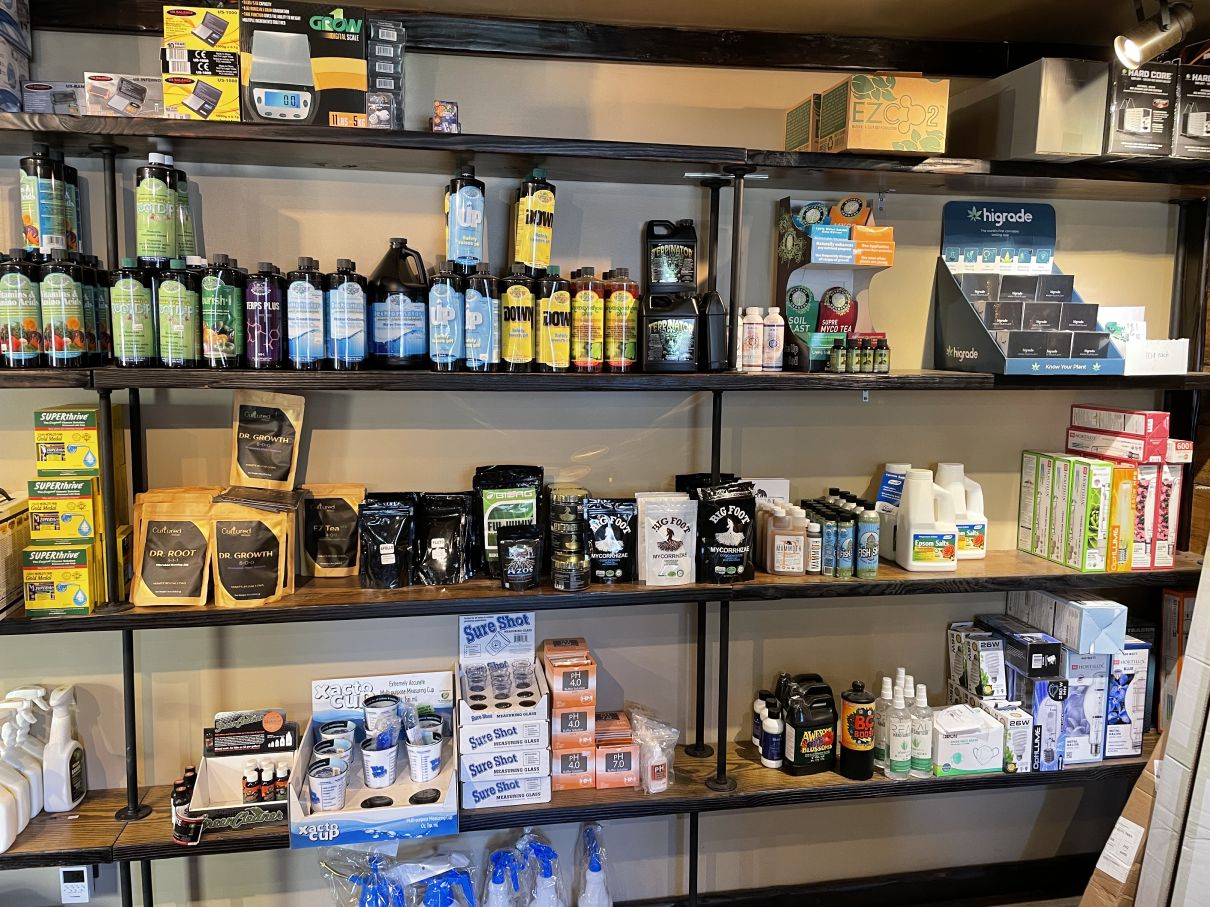The Indoor Earthworm Process: Your Trick to Flourishing Plant Kingdom With Planting
The Indoor Earthworm Process: Your Trick to Flourishing Plant Kingdom With Planting
Blog Article
Enhance Your Horticulture Abilities With Hydroponics: Exploring Benefits
The practice of cultivating plants without soil may seem unconventional at first, yet its benefits are worth taking into consideration. As we dive into the world of hydroponic gardening, we reveal a huge selection of advantages that not just boost plant development yet also provide one-of-a-kind opportunities for individuals looking to elevate their gardening abilities.
Benefits of Hydroponic Gardening
Hydroponic gardening supplies countless benefits as a result of its reliable use sources and exact control over plant development problems. By supplying plants with direct access to nutrients liquified in water, hydroponic systems get rid of the requirement for soil, decreasing water usage by up to 90% contrasted to typical soil-based farming. This reliable nutrient shipment technique also allows for faster plant development prices and greater yields, making hydroponic gardening an appealing option for making best use of minimal room and resources.
Additionally, the controlled setting of hydroponic systems allows growers to optimize elements such as moisture, temperature level, and ph degrees, bring about healthier plants with reduced threat of bugs and diseases. This accurate control over expanding problems not only advertises quicker and more constant plant growth yet likewise permits year-round farming no matter external climate conditions.
Faster Plant Development With Hydroponics
Utilizing sophisticated nutrient delivery systems, hydroponic horticulture helps with increased plant growth prices compared to standard soil-based cultivation approaches. In hydroponic systems, plants have direct accessibility to important nutrients liquified in water, enabling ideal absorption without the demand to expend power creating considerable root systems to browse for nutrients in the dirt. This efficient nutrient shipment device enables plants to reroute their power towards robust vegetative development and respected fruiting or flowering.
Additionally, the regulated environment in hydroponic configurations makes certain that plants receive the suitable problems for growth constantly. Factors such as temperature, moisture, ph, and light levels can be diligently monitored and adapted to produce the optimum expanding environment for each plant range. By removing the irregularity existing in soil-based gardening, hydroponic systems supply plants with a secure and desirable setup that optimizes their development possibility.

Water Conservation Conveniences
Given the reliable nutrient delivery system and regulated setting of hydroponic systems, one significant advantage worth discovering is the conservation of water resources. Hydroponic horticulture uses up to 90% less water compared to conventional soil-based horticulture approaches. This significant reduction is connected to the closed-loop system where water is recirculated and recycled, reducing waste. In typical soil gardening, water is lost through dissipation, drainage, and percolation past the root zone, resulting in inadequacies. In hydroponics, the nutrient option is supplied straight to the plant origins, ensuring optimal water uptake and decreasing water loss.
Moreover, hydroponic systems enable precise control over water usage, with the capacity to keep an eye on and change nutrient levels based upon plant demands. This targeted technique stops overwatering, a typical issue in soil-based gardening, more adding to water conservation efforts. By optimizing water performance and reducing waste, hydroponic visit gardening occurs as a sustainable and environmentally friendly choice for people wanting to reduce their water intake in gardening practices.
Year-Round Plant Farming

By regulating aspects such as light, temperature level, and nutrient levels, hydroponic systems allow plants to thrive no matter exterior climate conditions. This consistent setting permits constant plant growth and harvest, providing a reputable supply of fresh produce also in the dead of winter months.
Furthermore, the capacity to cultivate plants year-round in hydroponic systems opens chances for growers to explore a larger selection of plants, increase their growing periods, and rise total productivity. This versatility and reliability make year-round plant farming in hydroponics a useful tool for both hobbyists and industrial farmers wanting to maximize their horticulture efforts.
Enhancing Gardening Abilities Via Hydroponics
Creating efficiency in hydroponics can empower garden enthusiasts with a deeper understanding of plant farming strategies and improve their total horticulture skills. Hydroponic systems provide a regulated environment where garden enthusiasts can closely keep track of and adjust variables such as nutrient levels, pH balance, and lights conditions to maximize plant growth. By understanding these components, garden enthusiasts can tweak their abilities and expertise, causing even more effective harvests and much healthier plants.
Additionally, hydroponic gardening difficulties typical notions of soil-based cultivation, encouraging gardeners to believe outside the box and explore cutting-edge expanding techniques. This testing can cultivate creativity and problem-solving skills, as gardeners learn to adapt and troubleshoot issues unique to hydroponic systems. Furthermore, the efficiency of hydroponic configurations, such as vertical gardens or nutrient film techniques, can teach garden enthusiasts just how to make the most of space and resources effectively.
Conclusion
To conclude, hydroponic horticulture supplies countless advantages such as faster plant development, water conservation, and year-round growing. By exploring the advantages of hydroponics, individuals can boost helpful site their horticulture abilities and accomplish successful plant growth. Consider incorporating hydroponic strategies into your gardening techniques to maximize performance and efficiency in your garden.
As we delve right into the world of hydroponic gardening, we reveal a variety of advantages that not only enhance plant development but additionally offer special opportunities for people looking to raise their gardening abilities.Utilizing innovative nutrient shipment systems, hydroponic gardening assists in accelerated plant development rates contrasted to standard soil-based cultivation techniques. By eliminating the irregularity present in soil-based horticulture, hydroponic systems provide plants with a secure and beneficial setup that maximizes their development potential.
Enhancing the sustainability and performance of gardening techniques, year-round plant cultivation in hydroponic systems supplies a trustworthy and consistent find out technique for growing a variety of plants no matter of seasonal limitations. The Indoor Earthworm.In final thought, hydroponic horticulture provides many benefits such as faster plant growth, water preservation, and year-round cultivation
Report this page